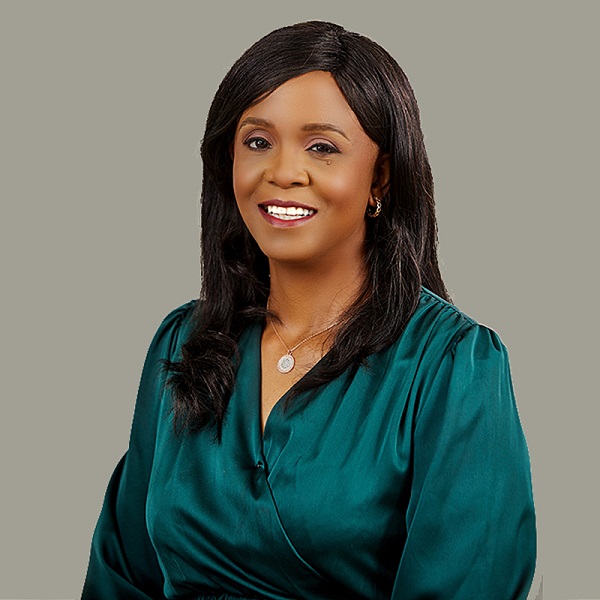
The managing director of Nigeria Health Watch, Mrs. Vivian Ihekweazu emphasised the transformative power of solutions journalism in shaping the narrative of news reporting in the country. She made this assertion during the project closeout event held in Abuja on Thursday, where the impact of the work was shared and the organisations, newsrooms and individuals behind the project’s success were celebrated.
In 2021, Nigeria Health Watch officially embarked on the implementation of the Nigeria edition of the Solutions Journalism Africa Initiative project, supported by the Solutions Journalism Network (SJN) USA and overseen by the Africa Initiative. The organisers of the project expressed their satisfaction with the fulfilling and purposeful three-year journey.
According to Ihekweazu, evidence has shown that news consumers tend to disengage when news reporting focuses solely on problems. She explained that solutions journalism, which entails rigorous reporting on how people respond to social problems, presents a more comprehensive picture by discussing both the problem and the corresponding response.
“The collaboration between Nigeria Health Watch and the Solutions Journalism Africa Initiative (SJAI), with the generous support of the Solutions Journalism Network, has enabled us to train and support newsrooms and journalists. This has empowered them to produce impactful stories that inspire change and offer hope to our communities,” Ihekweazu stated.
She further highlighted that they have partnered with 30 media organisations, forming three cohorts of newsrooms and engaging a total of 90 journalists. The project has successfully published over 250 solutions-oriented stories, with over 100 of them indexed.
While acknowledging these accomplishments, Ihekweazu emphasised the ongoing commitment to measuring and enhancing the impact made.
The managing director of NAN, Mr. Buki Ponle stressed the significance of conscience in journalism. He urged journalists to ensure their writing touches humanity and promotes the public interest. Ponle added that there is always a positive aspect to every negative situation and encouraged journalists to search for the uplifting elements in their reporting, creating heroes and heroines through their stories.
He emphasised the crucial role of journalists in community service and advocating for development through factual and resourceful storytelling.
“As journalists, it is important to stand by our communities,” Ponle affirmed.
The manager of the Africa Initiative at SJAI, Ms Ruona Meyer highlighted the production of policy-reforming stories through the solutions journalism initiative in Nigeria. She stated that this approach is driving a change in the media’s reporting style in the country. Meyer considered the utilisation of the incredible stories produced during the project for training fellow journalists as a key achievement.
Meyer underscored the added value that solutions journalism brings to news reporting. She noted that readers, particularly the current generation, seek news stories that uplift and inspire change, veering away from narratives that solely amplify problems. She urged journalists to continue using their platforms to make a positive impact in the country.
During the event, senior programme manager, Nigeria Health Watch, Mr. Chibuike Alagboso, presented the lessons learned from the Solutions Journalism Africa Initiative.
Alagboso emphasised the importance of solution journalism in redirecting journalists’ focus from dwelling on problems to expending energy on presenting solutions. He explained that the project involved newsroom and fellowship engagements, which entailed field trips to areas facing established problems to explore how people were responding and learn from their experiences.
“The project has helped us understand that people are actively responding to social problems. Let’s continue to seek them out and share their stories, so others can learn,” Alagboso remarked.
Speaking on “The Roles of Solutions Journalism” and the future of impactful journalism, the programme director of the Nigeria Media Innovative Programme, Mr. Adedeji Adekule observed that the Nigerian media landscape was evolving and undergoing restructuring, with the emergence of various media outlets. Adekule emphasised that the audience was the currency of any media organisation and stated that solution stories add value and increase engagement.
“A journalist should not be one-dimensional. Stories must be well-balanced, and solutions journalism is a good way to start,” Adekule advised.
Senior editor at the News Agency of Nigeria (NAN), Mr. Ismail Abdulaziz noted that solutions journalism had pioneered extensive story writing with the introduction of its four pillars. Abdulaziz expressed satisfaction as a journalist when focusing on solutions in stories, in contrast to the predominant trend of problem-focused reporting that often leads to news avoidance by the audience.
In conclusion, the project closeout event celebrated the positive impact of solutions journalism in Nigeria. It highlighted the need for journalists to embrace this approach, which goes beyond problem identification to presenting solutions and inspiring change. As the media landscape continues to evolve, solutions journalism has emerged as a key instrument in shaping the narrative and creating a more engaged and informed audience.

